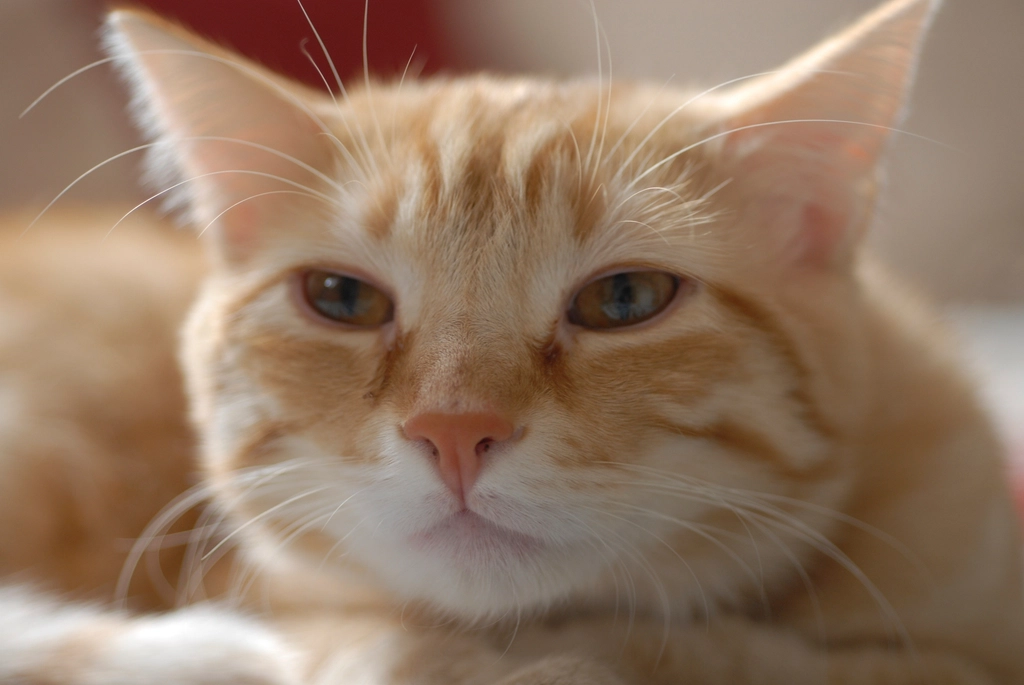Have you ever woken up to find your cat curled up near you, close enough to share your warmth but just out of reach of your hand? It’s a scene that leaves many cat lovers both charmed and a little puzzled. Why do our feline friends choose to sleep beside us, yet deliberately avoid physical contact? This mysterious behavior is both heartwarming and confusing, and it’s a question that resonates with almost every cat owner. Understanding this unique quirk can reveal a lot about your cat’s feelings, instincts, and the special bond you share. Let’s dive into the fascinating reasons behind why cats sleep next to you—without ever quite touching.
The Subtle Language of Feline Affection

Cats communicate in ways that are often subtle and easy to miss. Unlike dogs, who may shower you with obvious affection, cats prefer quiet gestures. When your cat sleeps next to you, just within reach but not touching, it’s expressing trust without losing its independence. This space allows the cat to feel safe while keeping its boundaries, showing that it values your presence while still needing personal space. Imagine it like two friends sitting together on a park bench—close enough to enjoy each other’s company, but not leaning on one another. For a cat, being near you is a big compliment, even if it’s not cuddling. This behavior is a gentle reminder that love can be quiet and doesn’t always need to be loud or obvious.
Instincts from the Wild: Safety in Proximity

Deep down, every house cat carries the instincts of its wild ancestors. In the wild, cats often sleep close to their group for safety but avoid direct contact to stay alert for danger. By sleeping next to you but not touching, your cat is following its natural instincts. It wants to be close enough to sense your movements and feel secure, yet far enough away to leap into action if needed. This behavior is a clever survival tactic, born from a need to balance comfort and caution. Even in the safety of your home, these instincts remain strong, showing just how much your cat’s wild heritage shapes its everyday life.
Trust Without Vulnerability

Trust is a precious thing in the eyes of a cat. When a cat chooses to sleep near you, it’s a sign that it sees you as a source of safety. However, sleeping is a vulnerable activity for any animal, and cats are no exception. By lying next to you but not touching, your cat is saying, “I trust you, but I still want to be on guard.” This small distance gives your cat enough space to react quickly if startled. It’s like having a safety net—being close to someone you trust, but keeping just enough distance to feel in control. For your cat, this balance of trust and self-protection is perfectly natural.
Temperature Control and Comfort

Cats are famous for seeking out the warmest, coziest spots in the house. While your body heat is inviting, direct contact can sometimes be too much for their sensitive bodies. By sleeping next to you without touching, your cat can enjoy your warmth without overheating. This careful positioning helps your cat regulate its body temperature, getting just enough heat to stay comfortable. Think of it like adjusting a blanket on a cold night—you want to be warm, but not too hot. Your cat is simply finding that perfect balance between coziness and comfort, all while staying close to you.
Personal Space: A Cat’s Independence

Independence is at the heart of every cat’s personality. Unlike pack animals, cats are solitary by nature and value their personal space. Even when they love you dearly, they still crave moments of solitude. Sleeping next to you without touching is your cat’s way of saying, “I want to be with you, but I also need my own space.” This delicate dance of closeness and independence is what makes cats so intriguing. They can be social and affectionate, yet fiercely independent at the same time. If your cat chooses to sleep nearby, it’s a sign of deep affection—just delivered on its own unique terms.
Scent and Territory: Marking Their Place

Cats are very sensitive to smells and use scent to mark their territory. By sleeping next to you, your cat is leaving its scent nearby, which is a way of claiming you as part of its territory. However, not touching allows your cat to keep its scent fresh without mingling too much with yours. This behavior is a subtle way of saying, “You belong to my world, but I still need to be me.” It’s a fascinating blend of attachment and individuality, showing how your cat balances connection and self-identity. Every night your cat chooses to sleep next to you, it’s reinforcing that invisible bond—one scent at a time.
Emotional Connection: Silent Companionship

Perhaps the most touching reason your cat sleeps next to you without touching is the simple desire for companionship. Cats may not always show affection in ways that are obvious, but their quiet presence speaks volumes. By lying near you, your cat is participating in a shared ritual that brings comfort to both of you. This silent companionship can be incredibly soothing, especially after a long or stressful day. It’s as if your cat is saying, “I’m here for you, even if I don’t need to be in your arms.” This gentle presence is often more meaningful than any loud display of affection, reminding us that sometimes, the quietest gestures are the most powerful.

Linnea is a born and bred Swede but spends as much time as possible in Cape Town, South Africa. This is mainly due to Cape Town’s extraordinary scenery, wildlife, and atmosphere (in other words, because Cape Town is heaven on earth.) That being said, Sweden’s majestic forests forever hold a special place in her heart. Linnea spends as much time as she can close to the ocean collecting sea shells or in the park admiring puppies.






